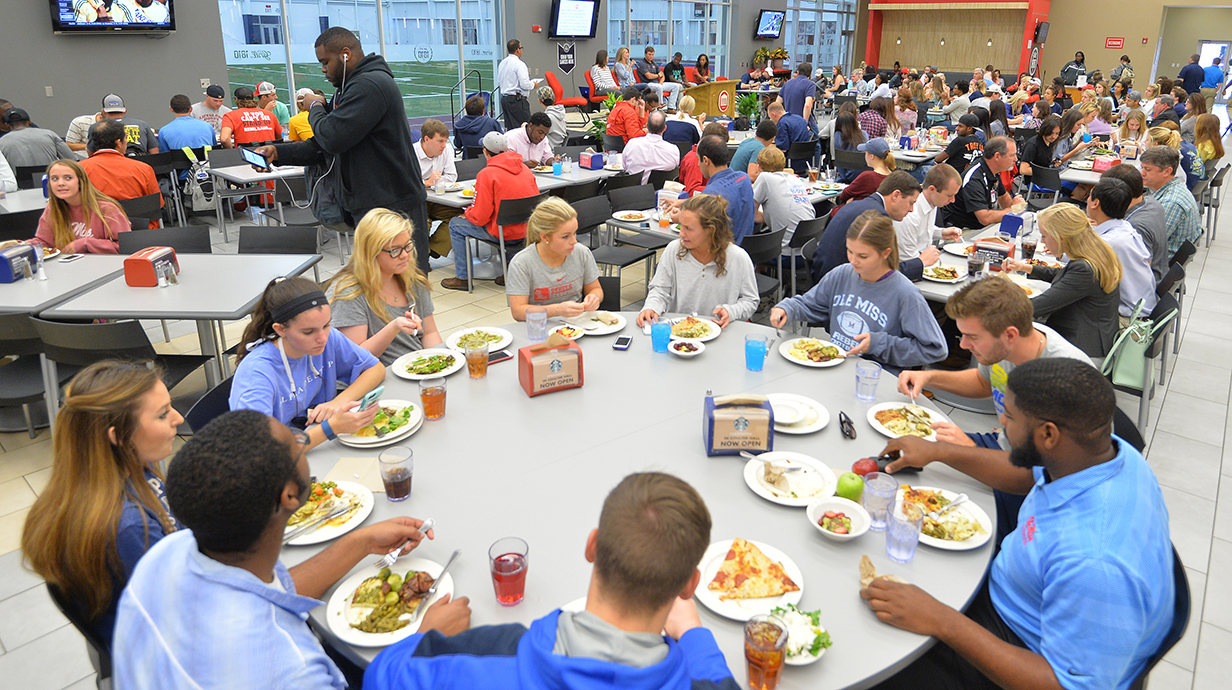Ole Miss Dining Nets Gold in Carbon Neutral Ranking
UM partnership with local farm highlighted by award

OXFORD, Miss. – The National Association of College and University Food Services has awarded the University of Mississippi's Dining Services its gold award for carbon neutrality.
The association's sustainability awards recognize dining services that have made a significant commitment to the environmental sustainability and social responsibility of a campus.
"Our team poured themselves into this project, and I am thrilled for them to be recognized for their efforts," said Chip Burr, Aramark Higher Education's resident district manager. "We are dedicated to making an impact in our community and are in complete alignment with the university's commitment to sustainability."
The award recognizes Ole Miss Dining Service's ongoing partnership with Homeplace Pastures, a farm fewer than 30 miles from the Oxford campus. Homeplace does not use synthetic fertilizers or pesticides and values sustainable practices in farming, Burr said.
Carbon neutrality is when the amount of greenhouse gases released into the atmosphere is balanced by the amount being removed, causing net-zero carbon emissions. The association's carbon neutrality award goes to dining services that make purchasing decisions that avoid deforestation and favor sustainable agriculture.
Since April 2023, Homeplace Pastures has provided grass-fed and sustainably processed beef and pork to Ole Miss and is a regenerative farm, meaning it emphasizes sustainable practices and soil regeneration.
The award will be presented on July 20 during the National Association of College and University Food Services' National Conference in Louisville, Kentucky.
Top: Students eat at The Grill at 1810 on campus. Ole Miss Dining has won gold for its efforts to reach carbon neutrality through a partnership with Homeplace Pastures, a local farm. Photo by Robert Jordan/Ole Miss Digital Imaging Services
